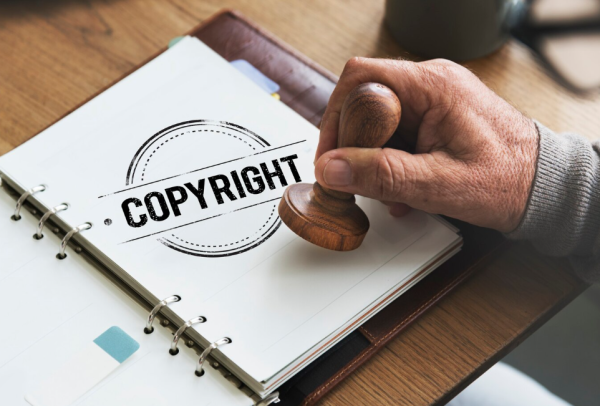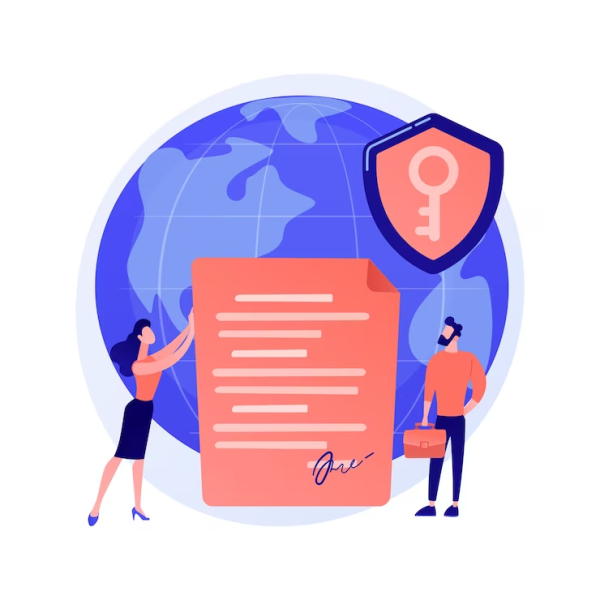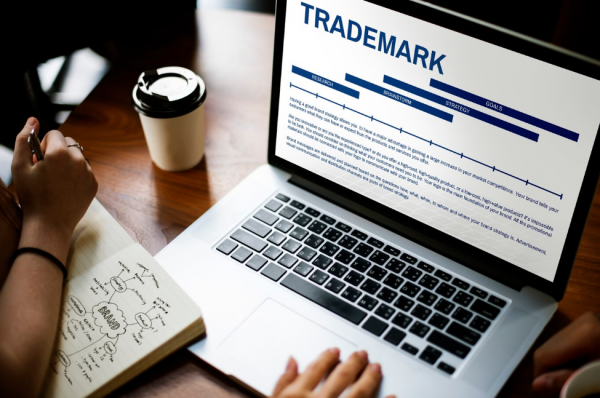Copyright Enforcement
In the dynamic digital landscape, the creative assets of corporate brands are increasingly exposed to unauthorized use and piracy. Brandsec provides comprehensive solutions for enforcing copyright laws, protecting the intellectual property of corporate entities on the internet.
brandsec specializes in upholding the copyright integrity of our Clients and resolving infringement disputes. Our goal is to address copyright issues efficiently and fairly and safeguard our Clients digital content.


The Importance of Copyright Enforcement
When a brand’s content is misused or pirated, it can lead to misinformation and degrade the perceived quality of the brand. Ensuring that only authorized, high-quality reproductions of a brand’s content are available maintains the integrity and reputation of the brand in the eyes of consumers.
Securing Revenue Streams: Copyright enforcement is vital for a brand’s financial health. It prevents significant losses caused by unauthorized use of a brand’s intellectual property.
Protecting Intellectual Property: Intellectual property, including unique designs and original content is a brand’s core asset. Copyright enforcement maintains the brand’s distinctiveness and competitive advantage.
Ensuring Market Fairness: Copyright enforcement is essential for fair competition, stopping competitors from unfairly using a brand’s IP.
Our Copyright Enforcement Services
1. Digital Asset Monitoring
Utilizing advanced monitoring tools, we continuously scan the internet for unauthorized use of your copyrighted content across websites, social media platforms, digital marketplaces, and more.
2. Infringement Analysis and Validation
Our team employs sophisticated algorithms combined with expert analysis to accurately identify and validate instances of copyright infringement, ensuring precise and targeted enforcement actions.
3. Rapid Response and Takedown
Upon confirmation of infringement, we swiftly initiate takedown procedures through official channels, including DMCA notices, and liaise with ISPs, hosting providers, and digital platforms to ensure prompt removal of infringing content.
4. Legal Support and Litigation Assistance
In cases where takedown notices are insufficient, we provide legal support and can escalate to litigation, working closely with legal counsel to protect your copyrights effectively.
5. Continuous Strategy Adaptation
We understand that the digital realm is ever-evolving. Our strategies are adaptive, ensuring that we stay ahead of new trends in copyright infringement and digital piracy.



DMCA Enforcement

Understanding DMCA
The Digital Millennium Copyright Act (DMCA) is a critical tool in copyright enforcement. It provides a legal framework for addressing online copyright infringement.

DMCA Takedown Notices
We specialize in crafting and issuing DMCA takedown notices. Our team ensures that these notices are legally compliant and effectively communicated to the responsible parties, including website owners and hosting services.

Counter-Notice Responses
In cases where a counter-notice is received, our team provides strategic advice and legal support to navigate the complexities of these situations.

Ongoing DMCA Compliance
We also assist in ensuring that your digital platforms comply with DMCA regulations, reducing the risk of liability for your brand.
Copyright Enforcement (DMCA) on Social Media
Submitting DMCA takedown notices across multiple social media platforms is challenging due to each platform’s unique policies. This process requires continuous monitoring for infringing content and managing various requests. Utilizing a service like Brandsec, which has in-depth knowledge of each platform’s procedures, streamlines this process. These services efficiently navigate DMCA submissions, handle multiple requests, and offer strategic intellectual property protection advice, saving time and increasing brand protection effectiveness.
To report copyright infringement on Facebook, you need to first identify the specific content (like a post, video, or photo) that you believe infringes your copyright. Then, access Facebook’s dedicated copyright reporting form.
After submitting the report, Facebook reviews it and, if they find the content infringing, will remove it and notify the uploader, who has the right to file a counter-notification if they believe the content was wrongfully removed.
To report copyright infringement on Twitter, you first need to identify the specific tweet or media content that you believe infringes your copyright. Twitter provides a dedicated copyright infringement report form, accessible through their Help Center or website.
After submission, Twitter reviews the report, and if they determine the content to be infringing, they will remove it and notify the user who posted it.
Google provides a specific online form for copyright complaints, which can be found in their Legal Removal Requests section or by searching “Google copyright infringement report” in their search engine.
After you submit the form, Google will review the complaint and, if they find the content to be in violation of copyright laws, they will take appropriate action, which usually involves removing the infringing content from their services.
Reporting copyright issues on Telegram involves a specific process. First, you need to identify the content on Telegram that you believe infringes your copyright, whether it’s a message, image, video, or any other media shared within the app.
Telegram doesn’t have an automated online form like some other platforms; instead, you should send an email to copyright@telegram.org detailing your complaint.
To report copyright infringements on Instagram, use their online report form. You’ll need to provide your contact details, a description of your copyrighted work, the URL of the infringing content, and a statement affirming your claim.
Once submitted, Instagram reviews your report and may remove the content if it’s found to be infringing. Users can counter-notify if they believe their content was wrongly removed.
According to TikTok’s DMCA policy, if you suspect infringement of your copyrighted work on their platform, you can issue a takedown request.
For submitting a copyright takedown request, TikTok has an online form that needs to be filled out correctly and submitted via their official system for reporting copyright infringement.
If you believe that your copyright was posted on YouTube without your authorization, you can submit a copyright removal request to request that the content be removed.
After submission and validation of the notice, YouTube will proceed with suitable measures, potentially involving the removal of the video and assigning a copyright strike to the uploader.
Reddit’s copyright reporting process involves submitting a formal DMCA notice via email or a dedicated form on their website, detailing the specific content you believe infringes your copyright.
Upon receiving and verifying the notice, Reddit may remove the infringing content and take further action in accordance with their policies.
To enforce your copyright on Discord, submit a DMCA takedown notice with your details, a description of the infringed work, and the location of the infringement. Discord will review your submission in accordance with the DMCA and relevant intellectual property laws.
Pursuant to the Digital Millennium Copyright Act (17 U.S.C. § 512), LinkedIn has implemented procedures for receiving written notification of claimed infringements.
If you believe in good faith that your copyright has been infringed, you may complete the Notice of Copyright Infringement form.
Our Approach

Customized Solutions
We recognize that each brand has unique needs. Our solutions are tailored to fit your specific copyright concerns and digital presence.

Advanced Technology
Our use of cutting-edge technology ensures comprehensive monitoring and enforcement, protecting your intellectual property across the digital landscape.

Expert Team
Our team consists of seasoned professionals with expertise in digital copyright law, technology, and brand protection.

Protect Your Brand with Brandsec
Let's discuss how Brandsec can assist in safeguarding your creative works and maintaining the integrity of your corporate brand online.

Our



Questions and Answers in relation to Copyright Enforcement
Can people just use my copyright without my consent?
In Australia, copyright infringement can have serious legal repercussions, including civil litigation with remedies such as injunctions, damages, and legal costs, and in severe cases, criminal penalties like fines and imprisonment. Infringers may also face the seizure or destruction of infringing materials and equipment, along with reputational harm. While the specifics vary by case, those involved in copyright issues are advised to seek professional guidance, considering the complex nature of copyright law.
What is the best way to inform a 3rd party of a copyright infringement?
Once you have collected all of the evidence, such as screenshots, dates, and URLs, then consider sending a cease and desist letter to the infringer. The letter should clearly identify you as the copyright owner, describe the specific work that’s been infringed upon, detail how and where the infringement has occurred, demand an immediate halt to the unauthorized use, warn of potential legal action if the infringement continues, set a deadline for compliance, and include your contact information. Accuracy is important so we recommend using a service such as brandsec or a lawyer for this correspondence
Do DMCA copyright notices work in Australia?
In Australia, the use of takedown notices, similar to the U.S.’s DMCA notices, is a common practice for addressing copyright infringement on websites, particularly those hosted within the country. These notices require detailed information about the infringed work and the relationship of the notifier to that work. While Australian ISPs are obligated to respond quickly to these notices, for content on international sites, like those in the U.S., Australian copyright owners might use DMCA notices, necessitating precise detail about the infringement. Due to the intricacies of navigating international copyright laws, it’s advisable to consult legal experts for guidance.
What should I do if a 3rd party is using my copyright?
If you believe that a 3rd party is infringing of your brand’s copyright, the first step is to meticulously assess and document the infringement. Next, consider an initial approach with a cease and desist letter to the infringer, aiming for a swift, informal resolution. If this fails, we can assist you to explore legal actions, including injunctions and possible financial claims. We recommend implementing regular monitoring to detect future infringements to ensure that your rights are consistently protected and your business interests safeguarded.
Can i charge someone a licence fee for using my copyright without consent?
In theory, a copyright holder can seek to retroactively charge a license fee for the unauthorized use of their copyrighted material as part of a settlement or legal resolution. There are firms that specialise in sending claims to 3rd parties regarding copyright violations. However, this approach depends on the specifics of the infringement case and the willingness of both parties to agree to such terms. In most cases, chasing damages is often an expensive process, so we recommend focussing on ensuring any copyright infringements are address. It is also important to proactive monitor for issues and address them quickly.
How do copyright takedown notices work in Australia?
In Australia, copyright takedown notices function as a legal mechanism for copyright owners to address online infringements. When a copyright owner or their agent discovers their work being used without permission on a website, they can issue a takedown notice to the Internet Service Provider (ISP) hosting the site.These notices must detail the infringed work and its location, along with the notifier’s relation to the work. Upon receiving the notice, the ISP is legally required to promptly remove or disable access to the infringing content. This is in line with Australia’s ‘safe harbour’ laws, shielding ISPs from liability for user-generated content if they comply with these notices.
